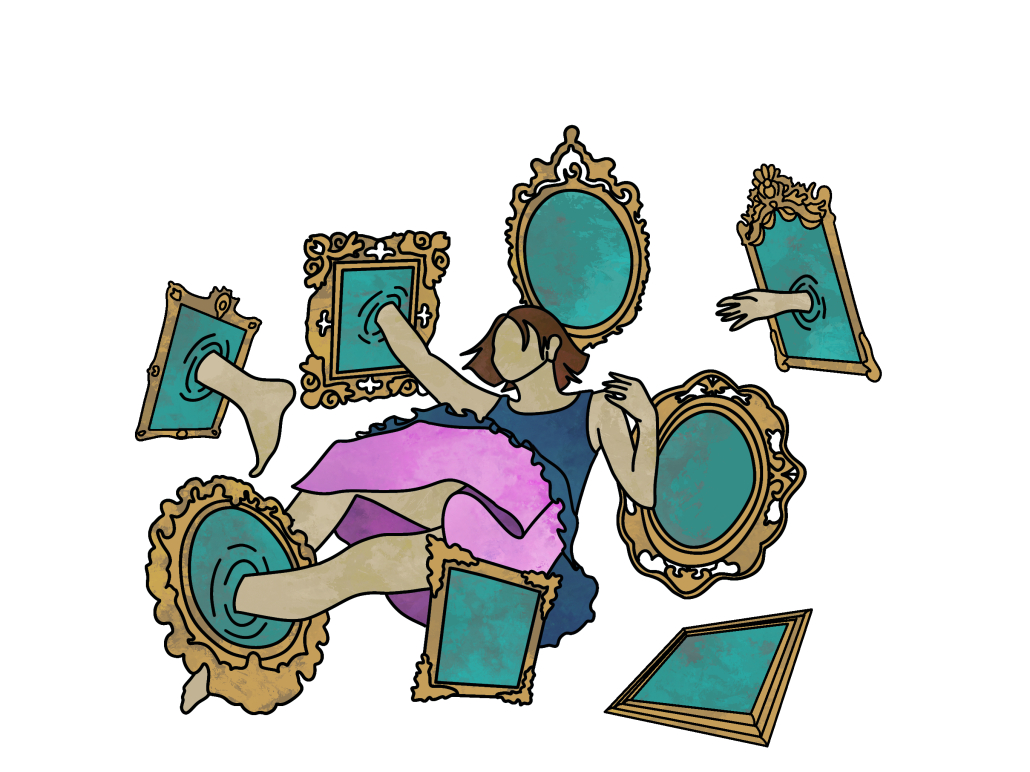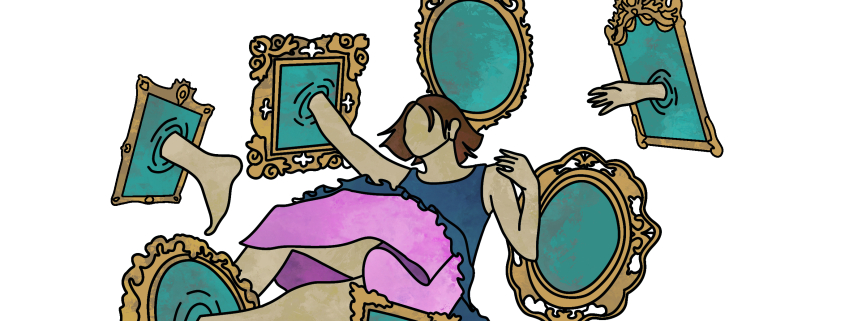Editor’s Epilogue: I don’t know what I’m doing

On a typical Thursday afternoon, I run from a grueling lab to work a seven-hour night production shift here at the Daily Trojan. I shove away my safety goggles and check Slack on my phone, pulling out my metaphorical red pen as I edit an article while shuffling through Alumni Park.
I’ve always done too much. I’ve always run from place to place, trying to figure myself and the world out. Throughout high school and college, I’ve felt as though I’m doing everything, everywhere, all at once, but the sum of things I do seems to be, well, nothing. (But maybe that’s my internalized job- and salary-driven college ethos talking.)
Almost every college student knows all too well the struggle of figuring out an answer to the big question: “What do you want to do with your degree?” I couldn’t have known the answer would be so difficult to find.
I go from one class, where a seasoned journalist preaches about the dueling importance and danger of reporting, to another, where my geology professor tells me, half-jokingly, that I’m destined to be poor if I pursue my interests. When two of my main academic foci, journalism and earth science, have more profitable “dark sides” — corporate public relations and petroleum geology — it’s easy to wonder, “Do I have to sell my soul to support myself?”
I’ve heard about the fall of print journalism, newsroom staff cuts, the rise of fake news, the murders of truth-telling reporters and the oversaturation of the media. Journalism lecturers warn against expecting the industry to be what it was several decades ago, and that’s very valid and justified. But I haven’t heard from my professors about how to adapt, as a young person considering going into the field, to the shifting journalism landscape.
I have core values and strong morals, but I haven’t yet seen them prized in an academic setting.
I want to advocate for the environment, for those impacted by the climate crisis. I grew up watching the lakes and forest reserves of Southern Ontario that I love become worn down by human activity and development. I saw my parents struggling with environmental health issues stemming from pollution and nuclear waste spread in the former Soviet Union, and the lack of action taken against that devastation.
I want to write and storytell and investigate. But I’m told by my professors, my peers, my family and, especially, LinkedIn that I need to be striving for something specific, something profitable, something quantifiable.
It’s my impression that skills, interests and relationships are increasingly commodified, especially on college campuses. In this context, it’s hard to imagine a path to success for myself: I’m turned off by the extractive nature of networking and like to spend my free time on unproductive hobbies. The thoughts always circle back to “I’m not made for this.”
In my two years at USC, I’ve felt an imposed assumption that what I spend my time doing is what I ultimately want to do for the rest of my life. When I’m spending lots of time on lots of contrasting things, this gets murky and confusing.
If I spend 35 to 40 hours a week in the Daily Trojan newsroom, that must mean that I’ve settled on a career in journalism, right? But then, why am I staying up until 3 a.m. working on a chemistry assignment or researching media ethnography? I hear my mom’s voice on the phone pleading with me to finally choose. Choose a field, choose a job, choose a future.
Yes, I’m doing a little too much of a little too many things. In keeping with the spirit of a liberal arts education, where knowledge should serve as a lens through which to view the world instead of a feeder into a pre-set job, I want that to be okay.
“Editors’ Epilogue” is a rotating column featuring a new Daily Trojan editor in each installment and their personal experiences of living in what seems to be an irrepressible dumpster fire of a world. Christina Chkarboul is an associate managing editor of the Daily Trojan.

